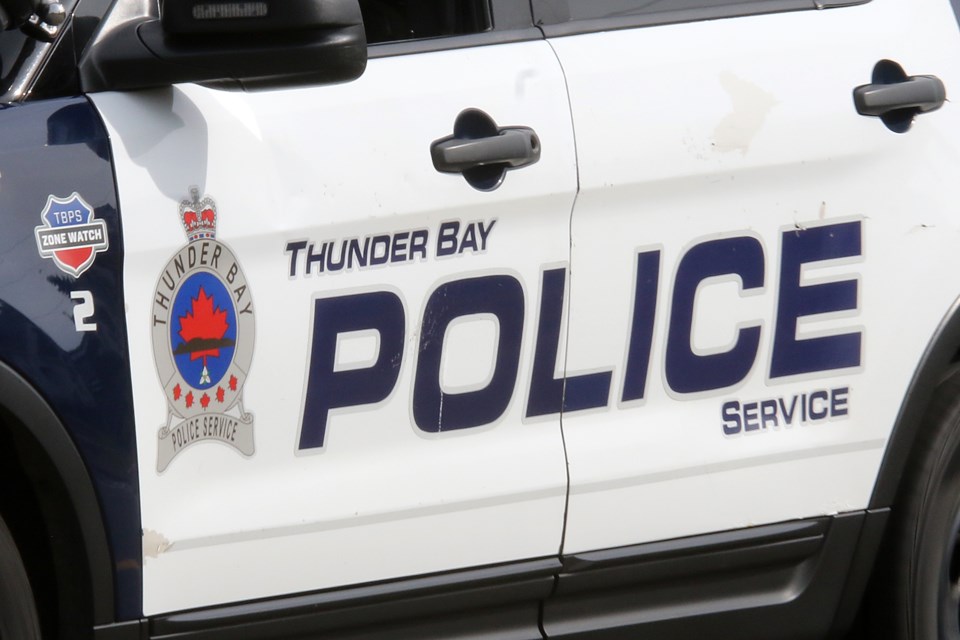Police agencies in several parts of Northern Ontario are forming partnerships with the Canadian Mental Health Association (CMHA) to have specially trained crisis workers respond to emergency calls.
One example is the creation of the joint mobile crisis response team in Thunder Bay, where mental health workers respond daily to crisis calls to assist the Thunder Bay Police Service
"This is successful, this is highly successful," said Jennifer Hyslop, the CEO of CMHA in Thunder Bay.
She explained that the program in her city was developed in 2019 after working with police inspector (now chief) Sylvie Hauth to create a new way for responding to emergency calls where people were in crisis.
"She and I did a number of proposals, researched best practices and put a proposal into the Northwest LHIN to fund a pilot project," said Hyslop.
"We called it the joint mobile crisis response project. We were eventually granted some funding in 2019," Hyslop explained. She added that a model was developed to include the police, CMHA and the Emergency Department at Thunder Bay Regional Health Sciences Centre. The program was launched in June 2019.
"So we have a permanent mobile crisis response team that operates 2 p.m. to 2 a.m. seven days a week," said Hyslop. She said two mental health workers are on duty and available to go out to crisis scenes when police ask for help. There are times when it is determined that police are no longer required at the scene and the crisis workers take over.
"I know we have diverted quite a high number of folks from the emergency department, which is wonderful,” said Hyslop. “People who are in crisis shouldn't have to go to emergency. It's not always the best place for them.
"The other exciting thing that we did is we partnered with Lakehead University to do some research on our project to analyze both qualitative and quantitatively; like are we making a difference, are we reducing the burden on police and the emergency department?"
Hyslop said the analysis revealed the worth of the program.
"It really does make a difference for people in crisis to be offered this type of model and that certainly resonates with many of the communities across North America," she said.
"The police felt far more supported and armed with the right resources. They're the first ones to say that they shouldn't be the first response for a mental health crisis. They don't have the skills and the training," she added.
"So the police they reported really favourable results. The emergency department staff, when they were surveyed, felt it was a really beneficial program. And we were able to speak with a couple of clients that we had served through this model who may have had an interaction prior with only the police, and they reported really favourable results."
While not providing any specific cost figures, Hyslop said the initiative is indeed sustainable from the CMHA point of view. She added that the review of the program revealed that the crisis workers were not able to attend all the police calls because there were times the staff were already out on a call or otherwise not available. She said in many cases, staff were responding to five or six calls a night.
"I think some of the key findings that we had when we reviewed the successes is the team served three times as many clients as originally projected," she revealed.
"In terms of the reduction of police time, that was one of things we had really hoped to track, and what the research showed was the police spent 40 fewer minutes in the emergency department when they were assisted on a call by our joint mobile team," said Hyslop.
"It doesn't sound like a lot but it is a lot."
She added that in situations where people are brought to the emergency department, it is usually a case where they seriously need to be there.
The next step the CMHA is looking at is to go to what Hyslop called "a true ride-along model" where a CMHA crisis worker is in the car with a police officer to offer services 24/7, seven days a week.
Hyslop said this would require further analysis to determine if this enhanced model would really reduce the number of patients being brought to the emergency department.
She said it is likely the crisis response program will change in the New Year.
"We have the Safe Bed program that should be launching in January here at CMHA and that will be a direct connection to the joint crisis work that is happening with the police. So folks who are in crisis can come directly to the Safe Bed instead of having to present to hospital."
Hislop said she believes in the work being done by CMHA in Thunder Bay and other Northern Ontario communities can stand out as a valuable model of care for other communities across the province.
"We have the uniqueness of being challenged to serve a huge geography and multiple different OPP detachments, city police and Anishinabek Police," she said.
"So I think that we are really hoping to kind of put it out there that we're being creative. We are very creative in the North. We don't always have the resources but we have a lot of creativity.”
